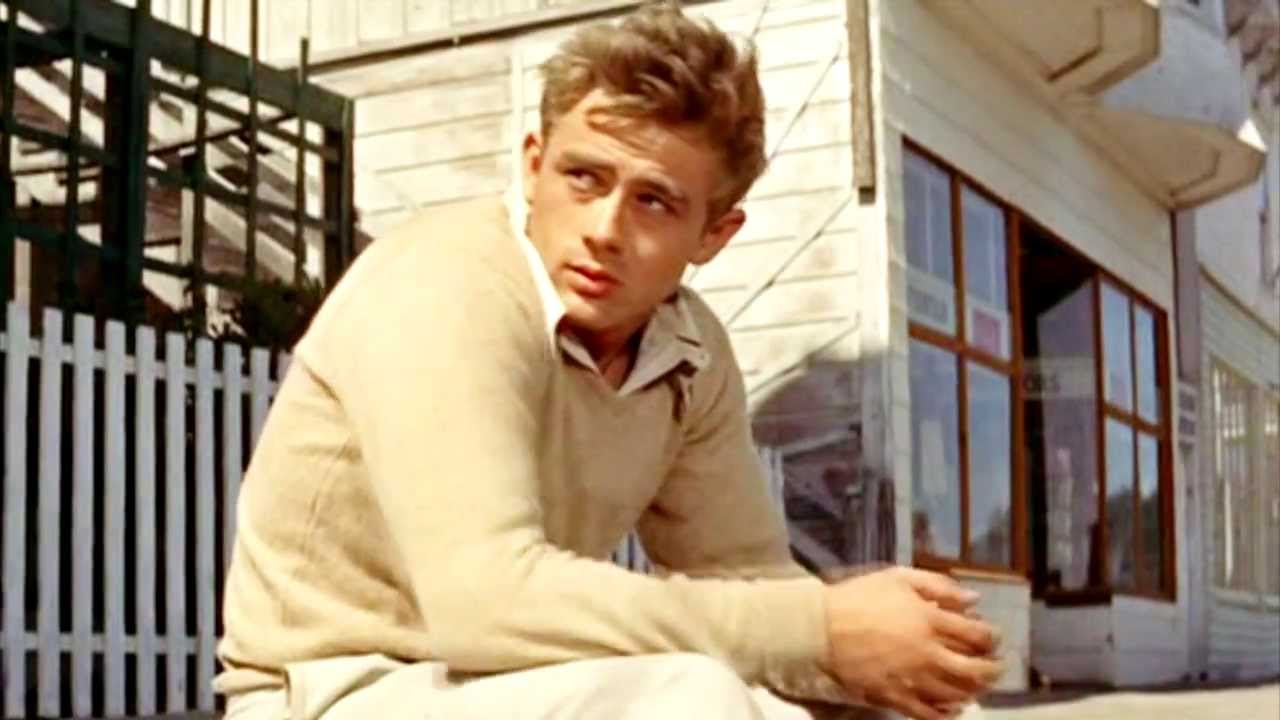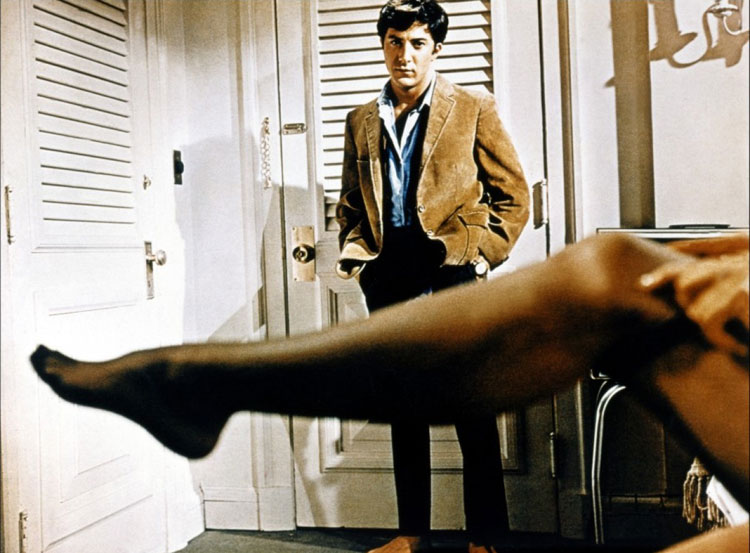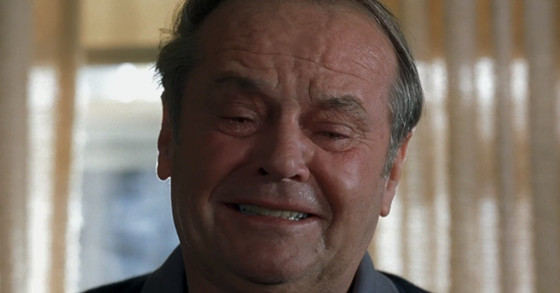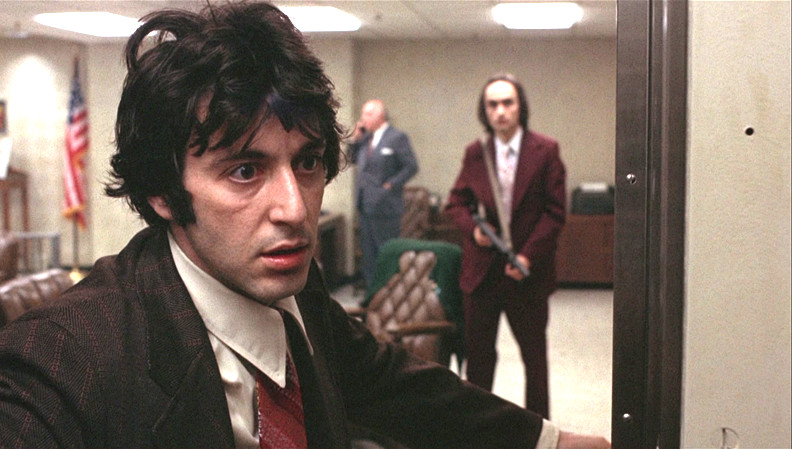5. James Dean (East of Eden)

It is a testament to his everlasting power as an actor that James Dean’s name fits into this list without hesitation despite starring in a mere three films in his entire career. He would certainly have given many more phenomenal performances had he not passed away at the age of 24, but the three he did give were enough to solidify him as a legend of film. Of those, two were nominated for Oscars but he did not win either one of them. A
s excellent as he was in Giant, it was his two performances in 1955 which best exemplified his refreshingly passion-fueled emotion and naturally eye-catching presence. His most iconic role was in Rebel Without a Cause, for which an Oscar win would have been justified but he was not nominated for that role. Instead, he was thankfully nominated for his best work.
East of Eden was the film that introduced Dean to moviegoers, and it is the one that contains the most gut-punching performance of his short but stunning filmography.
As a young man at odds with his brother, estranged from his mother and desperate for attention from his father, Dean approaches the coming-of-age character with painfully felt vulnerability unlike anything seen in a young actor before him. In one scene, he was supposed to react to the rejection of his father by turning away in anger.
Instead, Dean instinctively embraced the man in a hopeless gesture to beg for his affection. Such moments as this strike a chord in ways few films do, and it is all because of Dean’s awe-inspiring performance. Ernest Borgnine took home the gold that year for his admittedly great performance in Marty, but it is a travesty that Dean was defeated.
4. Dustin Hoffman (The Graduate)

Nominated for seven Best Actor Oscars including two wins, Dustin Hoffman is one of the most beloved actors of his time, and rightfully so. He was excellent in each of his winning roles as a determined father in Kramer vs. Kramer and as an autistic brother in Rain Man, and he shed his inherently likeable persona as a controversial comedian in Lenny.
One of his very best performances which makes a case for the #1 spot was in Midnight Cowboy, playing a sick and crippled yet resiliently upbeat con man. It is a shame that despite the film winning Best Picture, Hoffman lost out to a career-acknowledging victory for John Wayne in True Grit, possibly splitting votes with his co-star, Jon Voight. Another great shame of a loss was for his first nominated performance, and still perhaps his best.
As an endearingly shy and anxious young man caught in a web of life predicaments, Hoffman grabbed audiences’ attention with his breakout role in The Graduate. It is the pinnacle of romantic comedies and so is Hoffman’s performance, full of nervous ticks and deadpan deliveries that are both utterly real and subsequently laugh-out-loud funny. He then seamlessly grows out of his quiet apprehension when his character falls in love and affirms what he wants for his future with total passion.
When running down the street to stop his true love from getting married at the alter as the clock winds down – a trope one usually rolls their eyes at – the viewer cares because of Hoffman’s arc from shyness to persistence, and maybe the most beautifully bittersweet ending in all of cinema works even better as a result. Hoffman lost the Oscar to Rod Steiger in In the Heat of the Night, a strong performance but nowhere near the staying power of Hoffman’s timeless work.
3. Jack Nicholson (About Schmidt)

There is no such thing as a “Jack Nicholson type”; there is only Jack Nicholson. The unfortunately retired legend holds the most Oscar nominations of any actor in history with twelve, and is tied for the most wins with three. 3/12 ain’t bad, but considering the amount of top quality performances he has given, it might be a little short. He won Best Supporting Actor for Terms of Endearment but he was much more worthy of that prize in such films as Easy Rider and Reds.
He won Best Actor for As Good as It Gets, which is actually an under-appreciated performance with more heart than we typically see from him, but he should have received that honor for his work in films like Five Easy Pieces or Chinatown, or even The Last Detail. Thankfully, he did win for One Flew Over the Cuckoo’s Nest, a quintessential performance for the ages. However, his most profound turn may have been the one for which he earned that twelfth and final nomination.
About Schmidt is Nicholson at his most nuanced, and yet oddly his most impactful. As a retiree coming to terms with his age and regretting the mundanity of his life, he gives a subtly tragic performance that feels entirely truthful and often works in the way of humor by contrast to the more flamboyant characters surrounding him. His journey toward late self-discovery as shown through several short encounters is understatedly touching thanks to the honesty in Nicholson’s portrayal.
The closing scene of the film contains the most emotionally powerful acting he has ever done, as his character finally receives assurance that his life has had meaning for others.
After the emptiness conveyed throughout the rest of the film, Nicholson breaks down in tears which are then met with a big smile, therapeutically culminating all the feelings he’d been bottling up and the ones he’d been desperate to experience. It should have solidified another Oscar win for the veteran, but he lost to Adrien Brody in The Pianist – another great performance in a highly competitive year.
2. Al Pacino (Dog Day Afternoon)

Bringing endlessly watchable intensity to every part he plays, Al Pacino has earned a spot on the list of Hollywood legends with performances that can kill with just a look or entertain with fierce grandiose.
For such performances he has been nominated for eight Oscars, but only won the last to make up for the rest in Scent of a Woman. It is a classic Pacino role that does deliver more than it is credited for, but the academy’s failure to reward him prior to this further proves what little they mean at the end of the day.
He did not even receive a nomination for his iconic and gloriously hammy performance in Scarface, and it is criminal that neither his work in The Godfather nor The Godfather: Part II led to a victory. His brilliant progression from good-natured war hero to merciless mob boss is one of cinema’s greatest characterizations and allows him to showcase every facet of his acting mastery. Having said that, there is one other Pacino performance that may stand above even that towering achievement.
His fearless and unforgettable work in Dog Day Afternoon as a protagonist who is both a bank robber and a homosexual in the 1970s acquires not only sympathy but pure astonishment at the levels of bravery on display. While the actor is known to go a little over-the-top in suitably extravagant roles, his portrayal here bears complete realism even during the most dramatically heightened scenarios.
At first, the robbery gone wrong generates awkward improvisation by the character which Pacino plays to such perfect spontaneity that one can’t help but laugh at his natural clumsiness. But the more developments are revealed, the more emotionally invested the viewer becomes in the man’s struggle.
One prolonged phone call scene in particular shows his exhaustion, rage, passion and sensitivity so effectively that the viewer gets a clear picture of who this person is despite the film taking place over the course of just one day. It is absolutely an Oscar-worthy piece of work and probably his best, but Pacino was unfortunately up against Nicholson’s Cuckoo performance that year which is a win that is hard to argue.
1. Marlon Brando (A Streetcar Named Desire)

Hailed by many as the greatest screen actor of all time, Marlon Brando certainly fits the bill with his indescribably magnetic presence, fascinating unpredictability and intrepid exposure of deeply personal emotions, even at a time when such things were practically nonexistent in film.
As with Pacino, Brando was nominated for eight Oscars in his time, of which he won two for indisputably monumental turns in On the Waterfront and The Godfather at very different stages in his career. He should have run away with the award for Last Tango in Paris in perhaps the gutsiest role he ever played, and he also would have been deserving for his supporting role in Apocalypse Now but he curiously missed the nomination.
Each of these performances could be argued as the best he ever gave – and since he is widely considered the greatest actor in history, they could also each be argued as the best single performance of all time. But tenably the finest work of his career was the one for which he garnered his very first nomination, introducing his unparalleled talents to the world.
The performance was that of a brutish and ungentlemanly husband in A Streetcar Named Desire, in which Brando practically revolutionized the craft of film acting with his ground-breaking rawness in place of theatricality. His unusually nasal voice, commanding physicality and riveting demeanor brings vibrant color to a black-and-white film and has stood the test of time as incredible attributes that no one could deliver quite like Brando.
Although his character attracts the protagonist – and the viewer, successfully – Brando does not hide his flaws and in fact would be bordering on apathy with his explosive tantrums and drunken pleads if not for the irresistible humanity and veracity underneath it all. His famous “Hey, Stella!” cries may be the first to be associated with the role, but he is absolutely mesmerizing to watch throughout.
Amazingly, this historic performance was the only one of the central acting quartet to not win the Academy Award, instead going to Humphrey Bogart for a virtually standard performance in The African Queen. Nevertheless, Brando’s remains one of the greatest turns in cinema and a crucial one to the advancement of acting styles, making it his best performance which somehow didn’t win the Oscar.
Author Bio: Ryan Jamison is a first-year film student from Vancouver, Canada who loves to watch, discuss and make films. Right now, he works at a movie theater, but in the long term he aspires to become a writer/director on a more public level.